Table of Contents
- Disclosure
- Intro
- 1. Get a Veterinary Checkup For Me!
- 2. Get Me Spayed or Neutered
- 3. Understand Us Cats and Our Claws
- 4. Litter Box Basics
- 5. Us Cats Clean Ourselves (Grooming)
- 6. Finding the Right Food for YOUR Cat May Become a Game of Chess
- 7. Flea and Tick Medicine
- 8. House Cat vs Feral Cat
- 9. A Cat Chooses YOU (Not the Other Way Around)
- 10. Some Cats Cuddle, Some Cats Don’t
- 11. Hairballs Happen
- 12. Cats Are Very Different From Dogs and Other Animals
- 13. Cats Like to Sleep A LOT
- 14. Cats Like Things Clean
- 15. Cats Love You and Can Be Sad When You’re Away
- References
Disclosure: The information provided in this article is for general informational purposes only and is not intended as professional veterinary advice. While every effort is made to provide accurate and up-to-date content, the advice shared here should not be considered a substitute for consulting with a qualified veterinarian or animal care professional. Individual cat care needs may vary, and it is essential to seek personalized guidance for your pet’s health and well-being. The author and the website do not accept any liability for any loss, injury, or damages resulting from the use of or reliance on the information provided. Always consult with a veterinarian before making any changes to your pet’s diet, health regimen, or lifestyle.

Intro
First time cat parent/owner? Want to be best cat mom ever? The best feline dad that ever was? You may be looking at your little furball and have realized you need a little help or advice from a fellow cat parent or straight from a fellow cat themselves! What if I told you not to worry and that you will learn to become a wonderful friend and owner to your new kitty?
It may be a little overwhelming at first trying to figure it out (especially if owning a cat for the first time) but it is easier than you think! Read on to find 14 things you will be so glad you read as you embark on this new journey! I’d also like to present you with the comforting voice of our own feline welcoming you into kitty parenthood! Read on!
Welcome to the wonderful world of feline companionship, dear human! You’re about to embark on a journey filled with purrs, playtime, and plenty of affection. Remember, we cats may be mysterious at times, but with patience, love, and a few chin scratches, you’ll discover the joy of having a furry friend by your side.
Here’s to many years of companionship, cuddles, and catnip-induced antics ahead! If I could give you some feline friendly tips to help you keep me in a blissful slumber this is what I would say…
1. Get a Veterinary Checkup For Me!
Are they gonna love going to the vet? Noooooooo! Buuuuuut… just as a baby gets checked out when brought into the world, your new feline needs a blessing of veterinary health.
There may be a circumstance where you were given a cat and have been given the pet’s history or received the cat from a good friend but it is still always a good idea to make sure your furball has all the boxes checked with a clean bill of health.
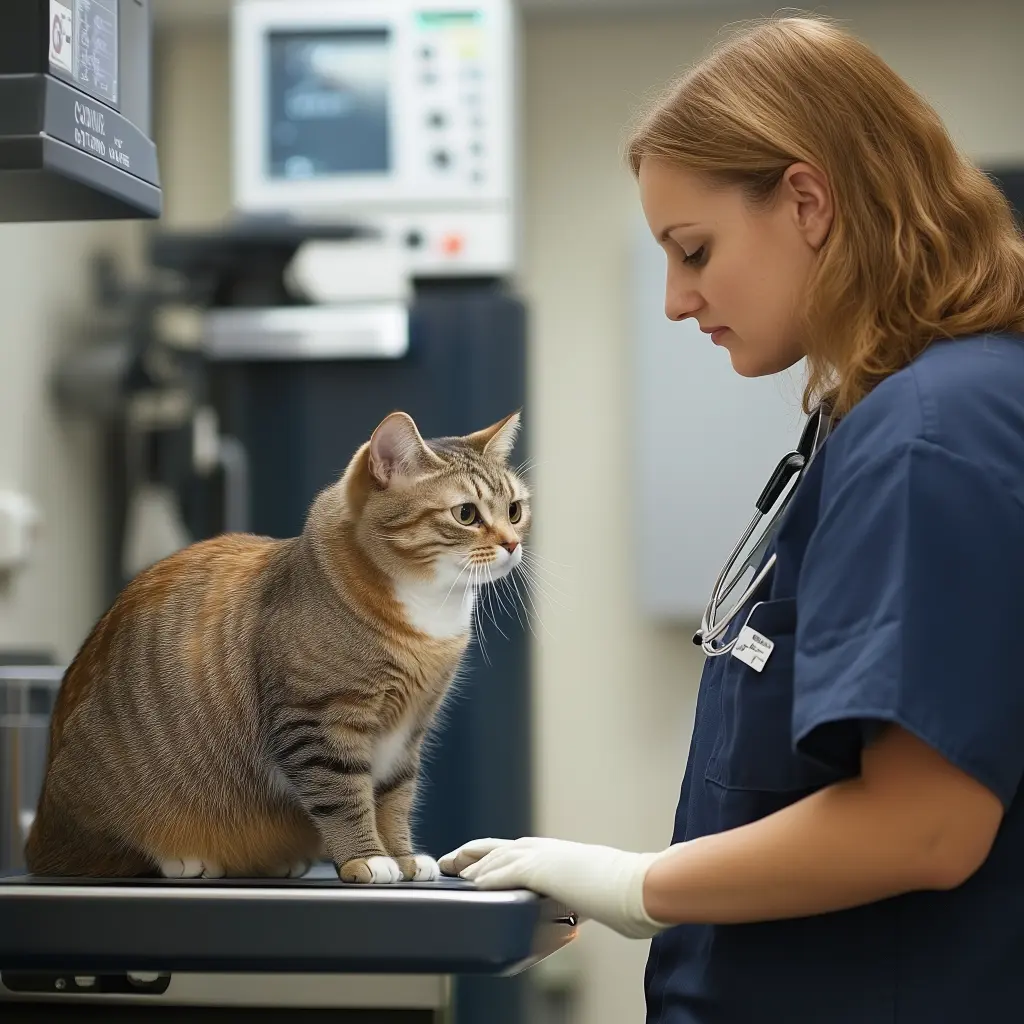
If You Don’t Believe Me Listen to a Kitty!
If I could speak human, I’d say, ‘Listen, my beloved human, I know the vet visits might seem like a nuisance to you, but trust me, they’re important for keeping me healthy and happy! You see, just like you, I need regular check-ups to make sure everything is purr-fect with my health.
The vet helps me stay up-to-date on vaccinations, keeps those pesky parasites at bay, and even makes sure my teeth are sparkling clean! Plus, they’re there to help if I ever feel under the weather.
So, while the car rides and poking might not be my favorite things, I know it’s all for my well-being, and that’s what matters most to me… well, that and a cozy spot by the window to watch the birds.
In all seriousness though, keep these in mind when taking a cat to the vet. Cats get easy stressed by things like:
- Getting picked up and handled by strangers
- Unfamiliar surroundings
- Loud noises
- Strangers (in general)
- Other strange animals
- Smells they do not recognize or seen as potential danger
- Cars and the noises they make
Can you think of some additional cat stressors that may be encountered during a vet visit?
Click this comment link to go to the end of the article to share your thoughts! 👇
How Much Does It Cost?
As you can imagine there are a lot of variables that can make the price of a vet visit fluctuate like the location where you live.
Because we are speaking in general terms, routine checkups can cost in the range of $50 – $250 with most regular vet services running at $100 or less [1.]
So right off the jump you see that owning a cat is a responsibility. Even if for some reason you elect not to get a checkup, your cat will eventually need to go to a vet. Please keep this in mind as you embark on your kitty parent journey or if you are still thinking of getting one.
2. Get Me Spayed or Neutered
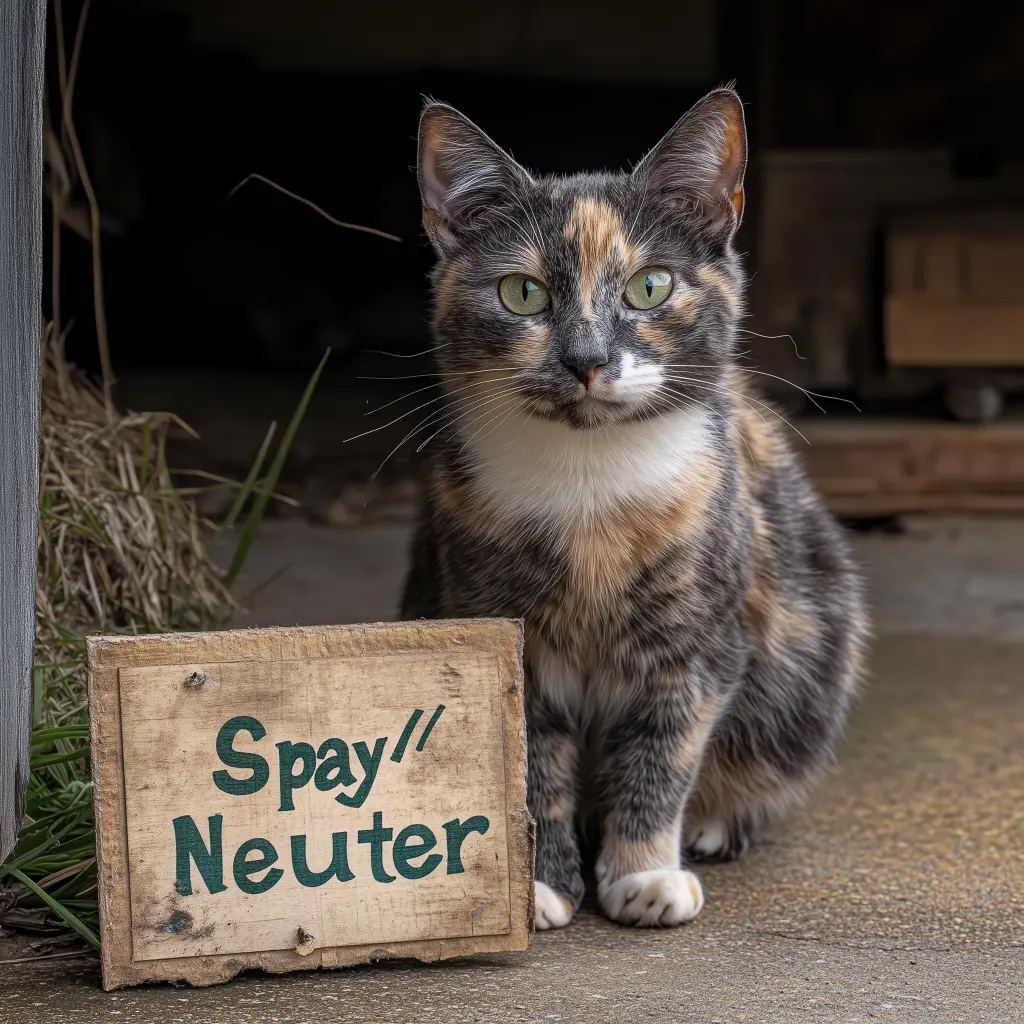
While discussing the vet check-up you may also want to go ahead and get kitty fixed and make an appointment to do so. Unless you plan on breeding responsibly, there’s a host of health and behavioral reasons that will benefit your cat if kitty is fixed. There are also plenty of disadvantages of not doing this such as unwanted litters and spraying in male cats.
If your cat has already been fixed, do a dance! One less thing for you to think about!
How Much Does it Cost to Spay or Neuter a Cat?
Factors: It depends on the type of place you go and where you live.
Ranges:
- Adopted or were gifted a cat that the owner/facility already got fixed = $0
- The average cost in the United States is $100 to $300 for a cat neuter (male) [2].
- The average cost in the United States is $200 to $500 for a cat spay (female) [2].
3. Understand Us Cats and Our Claws
If I only have your attention to read this section, then please read this all the way through. This is very important and something your cat really wants you to know.
So you have a new kitty or a kitten and there is a thing or two you may not have thought about before you chose a cat for your new companion. Cats have claws and cats tend to do a whole lot of things with their claws.
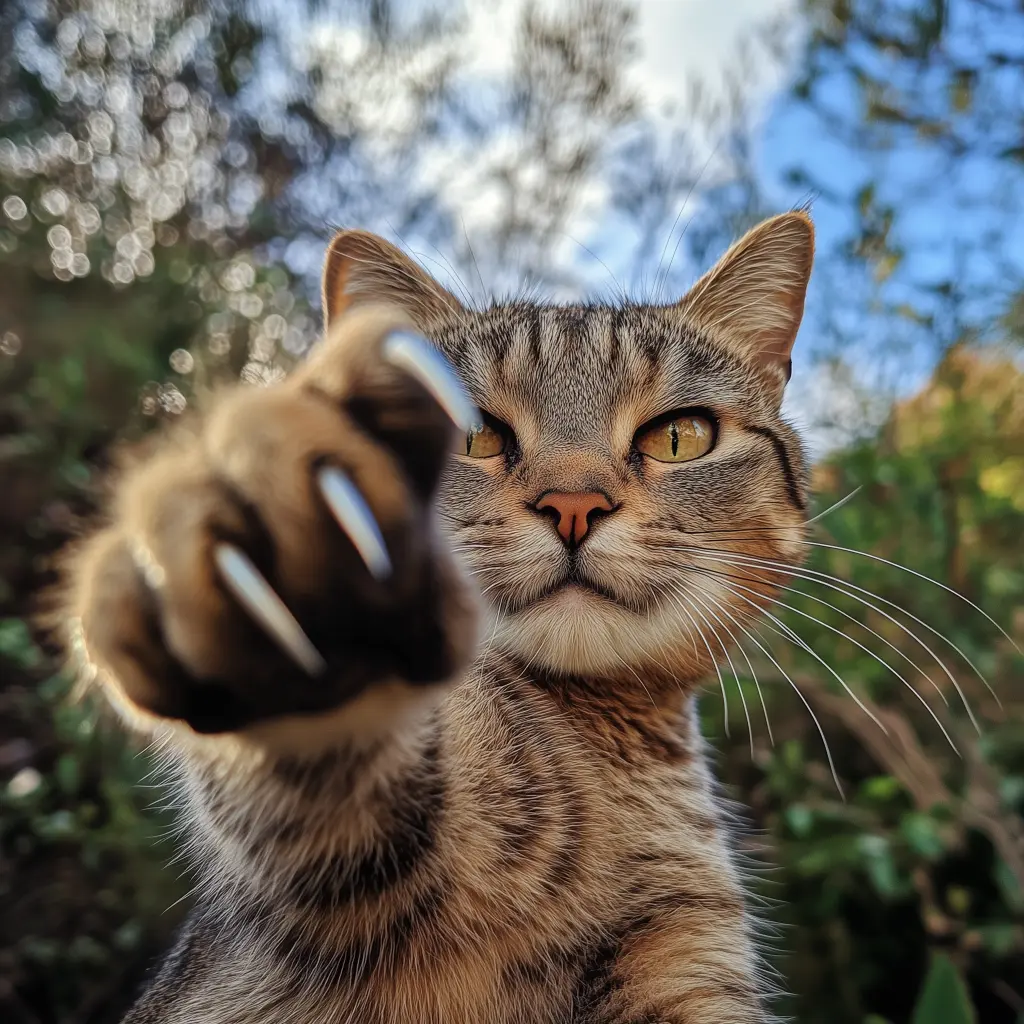
I’m starting with the “negative” side on this for a reason, awareness. Some of these claw behaviors may be things that humans are not too fond of when they do not understand how cats use their claws. I’ve named a few of the top behaviors below that people complain about.
It is important to understand ALL of these behaviors are NORMAL. A cat will not punish you for using your hands and fingernails so please do not punish kitty for doing what comes natural to them and their claws.
Kitties claws may do things like:
- Scratching random furniture in the house
- Accidentally or inadvertently scratching someone/something
- Scratching in defending itself, being scared, or startled
- Scratching when you may be trying to force a cat to do something it does not want to do
- Scratching when playing with you
- Climbing up curtains/drapes
- Kneading (which can hurt you if the kitty is on your lap)
- Scratching at other random things you own to mark territory
If you haven’t experienced all of this list yet, just give it time lol and you’ll likely be able to check off most if not all of these in the above list.
Please don’t punish kitty for these behaviors. Even when a kitty scratches you, it most likely had to do with the circumstances around what was happening at that time and not a direct attempt to hurt you or anyone on purpose.
If you really suspect at some point that the cat may be doing this intentionally then I would advise getting some help from a cat professional. Normal cats do not scratch humans for the fun of it.
One way to help with some of these behaviors is to get a scratching post or something kitty will use to scratch at that you don’t care about like scratching toys, scratching trees, scratching pads, scratching boards, or a do it yourself creation that includes something like corrugated cardboard.
What is the Average Cost of a Cat Scratching Post?
Depending on the quality and type on average can range from $10 to $100.
As with anything, experiment with what works and doesn’t work for your cat. You can even buy cat bed scratching posts that are shaped like the perfect place for a catnap!
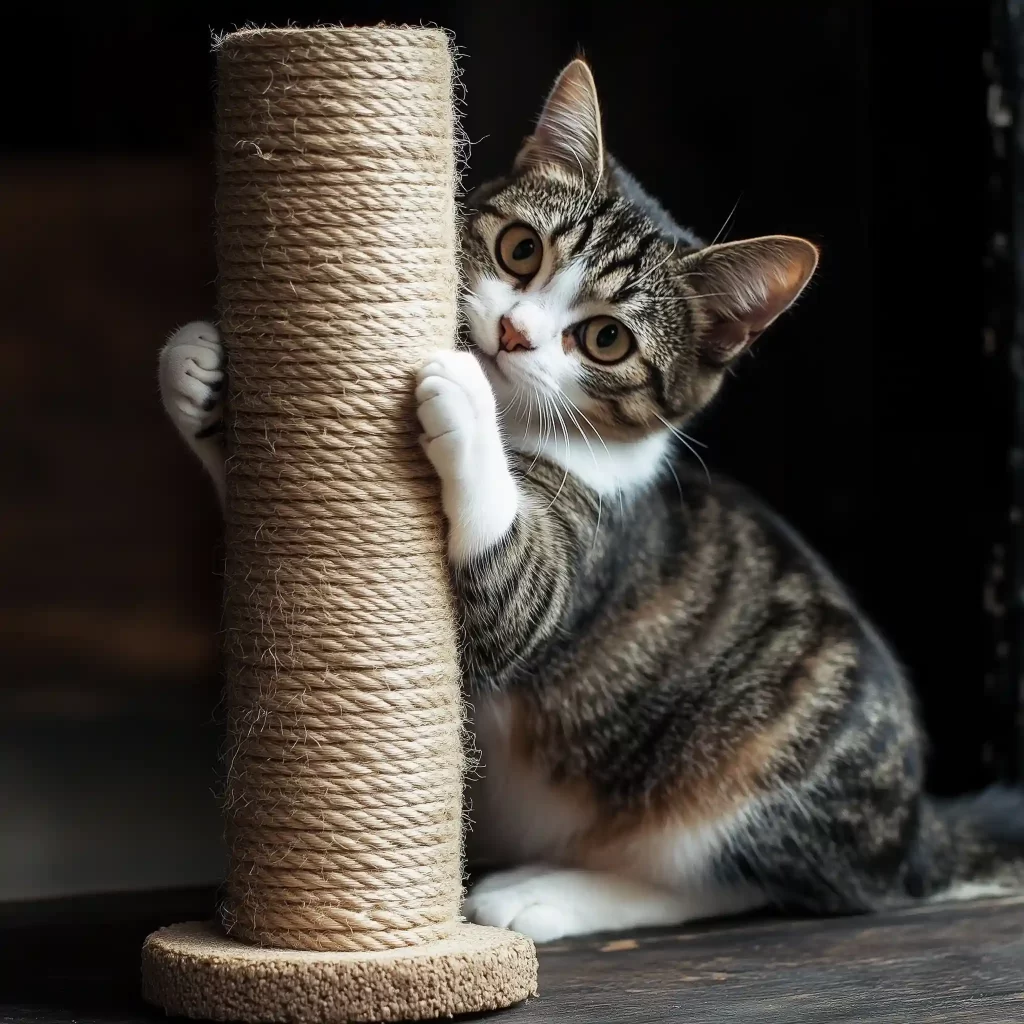
Why Cats Need Their Claws
There are a few basic reasons cats need their claws. A cats’ claws are essential to them. A cat without its claws is just so sad because they are born with them for multiple reasons. Cats need their claws for some of the following reasons:
- To defend itself
- To hunt for food
- Climbing
- Grooming (cleaning itself)
- Marking territory
- Stretching and Exercising
- To scratch themselves (that pesky itch behind the ear!)
A Cat Without its Claws
Know that it is not typical for a cat to not have their claws unless there are already some health issues or issues from birth in the cat’s history.
Cat declawing is also typically considered inhumane, is banned in many countries and cities in the U.S. [5], and strongly discouraged in various parts of the world to purposely try to rid your cat of its claws without a valid health reason and recommended as a last resort by a qualified cat vet or professional.
Should you come upon a cat without claws, or claws that look abnormal please take kitty to the vet if you can for a checkup as soon as possible to find out what is happening.
There are a few things that have been seen in cats that do not have them and all of these are just sad to write but for the sake of educating people about how much they need their claws this is what has been researched as potential affects from not having them:
- Changes in Behavior
- Pain and Discomfort
- The inability to defend itself (especially for an outdoor kitty)
- Aggressive behaviors
- Other physical health issues or complications
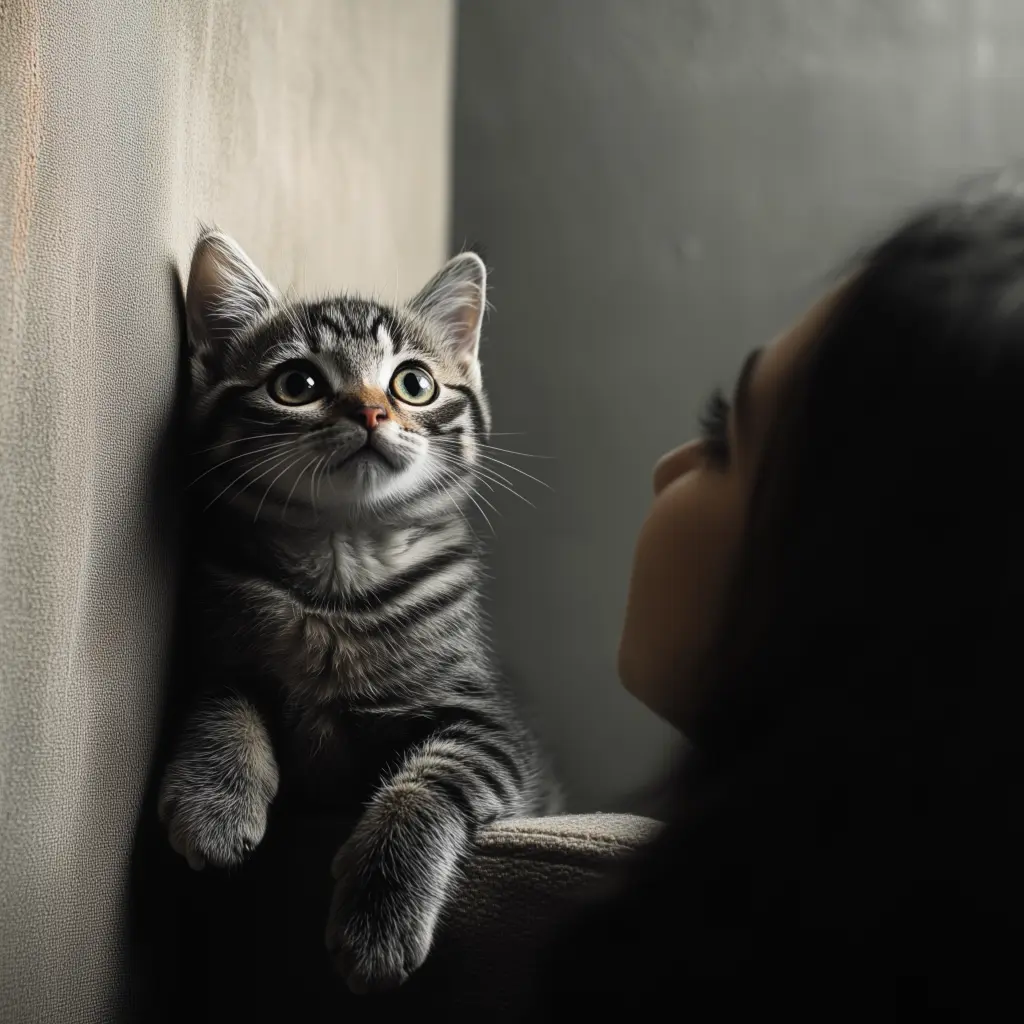
4. Litter Box Basics
One of the first things you will need to buy for a cat (especially an indoor only kitty) is a litter box. After all kitty will need to go to the bathroom somewhere and better in a litter box than your living room floor!
There is a wide range of litter boxes out in the universe from a very basic rectangular pan all the way up to the fanciest of automated box cleaners.
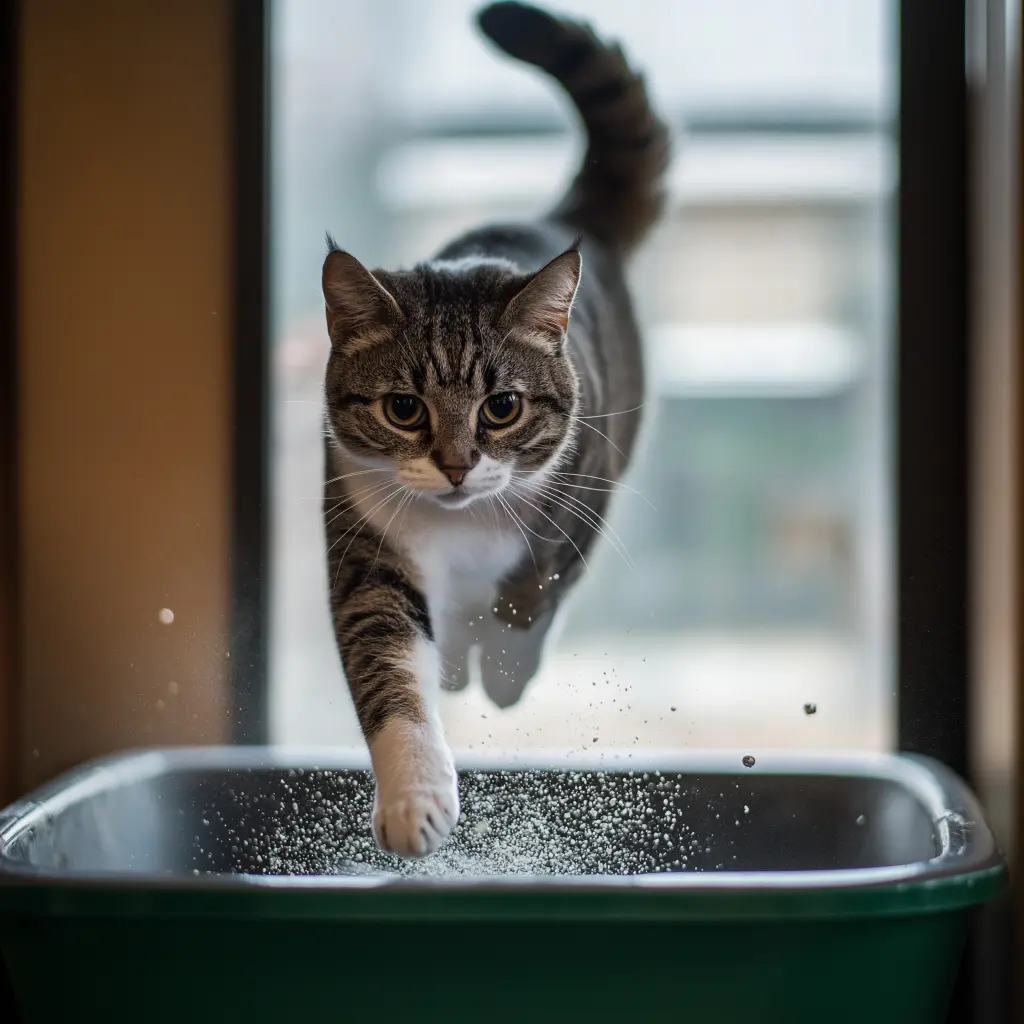
What type of litter box should you buy?
The answer is as with every kitty in most situations…it depends on your kitty. As a suggestion, I would start with a basic, simple litter box that has enough room for kitty to move around comfortably for their size, do their business, and an easy way to enter and exit the litter box.
There can be a lot of trial and error with a cat and a litter box. Not all cats will use every type of litter box but most cats will use a basic, open litter box. You can experiment with kitty to add an additional or different litter box to see if kitty is comfortable with other litter boxes that may have added benefits to you and kitty.
What kind of litter should I use with the box?
Another world of many choices. Again, try the basics while getting to know your cat. Litter doesn’t have to be fancy or expensive. The question becomes…is kitty happy with it? Does kitty use it without an issue? If your cat is unhappy with the litter box and litter situation typically they will let you know!
Keep the litter box clean!
Just remember to keep it clean and scoop dirty litter away so it stays fresh and so kitty can still find places in there to do their business. Once a cat runs out of room or finds the litterbox is too dirty don’t be surprised if you get an unwanted present on the floor! You’ve been warned!
Average Cost of a Litter Box
| Type of Box (Vary depending on qualities / features / location) | Cost |
| Cheap and Frugal Pan Litter Box | $5 – $20 |
| Middle Class Kitty | $20 – $50 |
| Cat Queen / King | $50 – $200 |
| Absolute “My Poop Smells Like Roses” Royalty Kitty | $200 and up |

Average Cost of Litter
On average, you’ll likely spend in the range of $20 – $40 for cat litter a month per cat [4.]
This could be more or less depending on the cat, how much the cat eats, drinks, etc.
Can Cats Share a Litter Box?
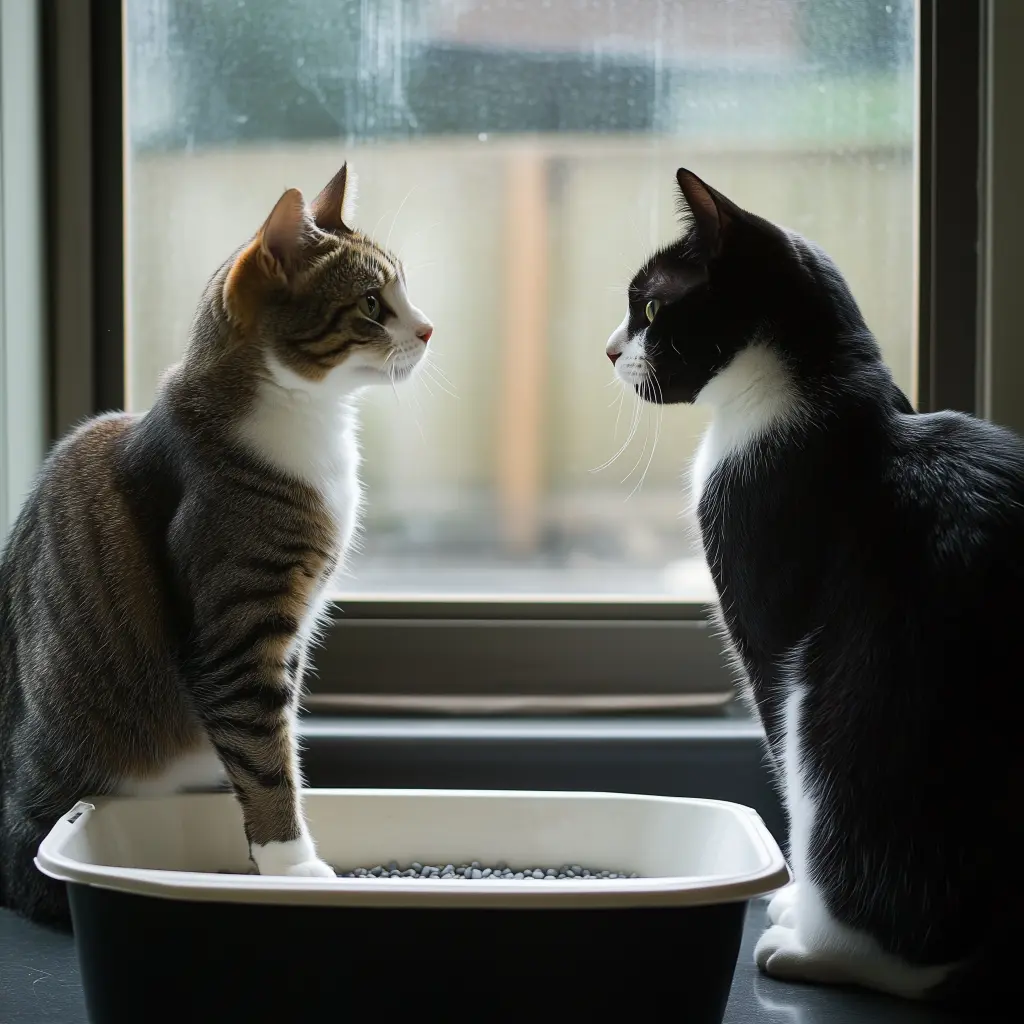
Yes and No…If you happened to be double blessed with multiple kitties then get ready for double the fun! Ideally, you’d want an extra litter box per cat [3]. So…math equation 1 Cat + 1
1 cat = 2 litter boxes
2 cats = 3 litter boxes
And so on….however, it is possible for cats to share litter boxes without an all-out war declared. I’ve personally seen 4 cats share 2 litter boxes and 2 cats share 1 litter box.
The key to the answer to this is how your cats feel about it. Ideally, you want to monitor them to ensure they really don’t mind sharing. If you end up with more cats than litter boxes you will become an official super, duper pooper scooper!
5. Us Cats Clean Ourselves (Grooming)
So perhaps you have a dog or other animal that you bathe on a schedule and are wondering what this looks like with a cat.
Good news alert! You don’t have to bathe a cat! In fact, although I’ve heard it does exist lol most cats do not like water, getting dunked in a bath, or getting thrown near a shower. I could list some reasons kitty might need a more extensive cleaning but these are usually rare circumstances.
Kitty will lick itself clean and this is by design. Kitties spend a lot of time doing this. You’ll see this behavior often right after they’ve eaten although it can really happen at any moment.

As with any rule there are exceptions. Although rare, I have had to give a cat a bath before (Went to the vet and cat decided to pee all over the place, itself, and me at the end of the trip. I’m just thankful it was at the END of the trip!
Cost to Keep a Cat Clean
Bathing a cat = None = $0
Could I put an entire list together with costs for extra grooming needs/nice to haves of a cat? Yes but we’ll save that for another post.
6. Finding the Right Food for YOUR Cat May Become a Game of Chess
There’s a game us humans play.
It is called “What in the world does my cat want to eat?”
So finding the food that your cat loves can be a chore. Dry food, wet food, pate, lots of gravy, shredded meat, snacks, and treats can make things a bit overwhelming.

Trial and Error
So is there an answer? This is going to be up to kitty again initially to show you what it likes and what it does not. If you notice kitty does like a specific type of food or brand, try something different.
Sometimes kitty is just not in the mood for what you tried. Other times kitty just does not like it.
Just a Preference?
Think about your own food preferences. You have things you do not like to eat right? You may not like leftover food. You may not like a specific brand of food. Your cat could very well likely just be experiencing undesirable taste or “not in the mood for that today.”
As you become more experienced with what your cat likes you may get better at this. Many vet professionals have personally told me that having a good amount of moisture in what your cat eats if possible will help in the fight against things like dehydration.
Special Diets
There are cats that need special diets just like humans do. As you can imagine, there are too many factors and a pet vet professional needs to be involved in this process.
If you have a medical history on the kitty this should help make this process a little easier.
7. Flea and Tick Medicine
Another cost you will need to keep in mind when it comes to cat care is flea and tick medicine. Even if you have a cat that is primarily indoors only, there are things like fleas, ticks, mites, lice, and other potential pests that can get into your home through other means.
Even just opening your doors, having another pet that goes outside, transfer from your clothes, and through cracks in your home’s infrastructure can all bring in unwanted guests.
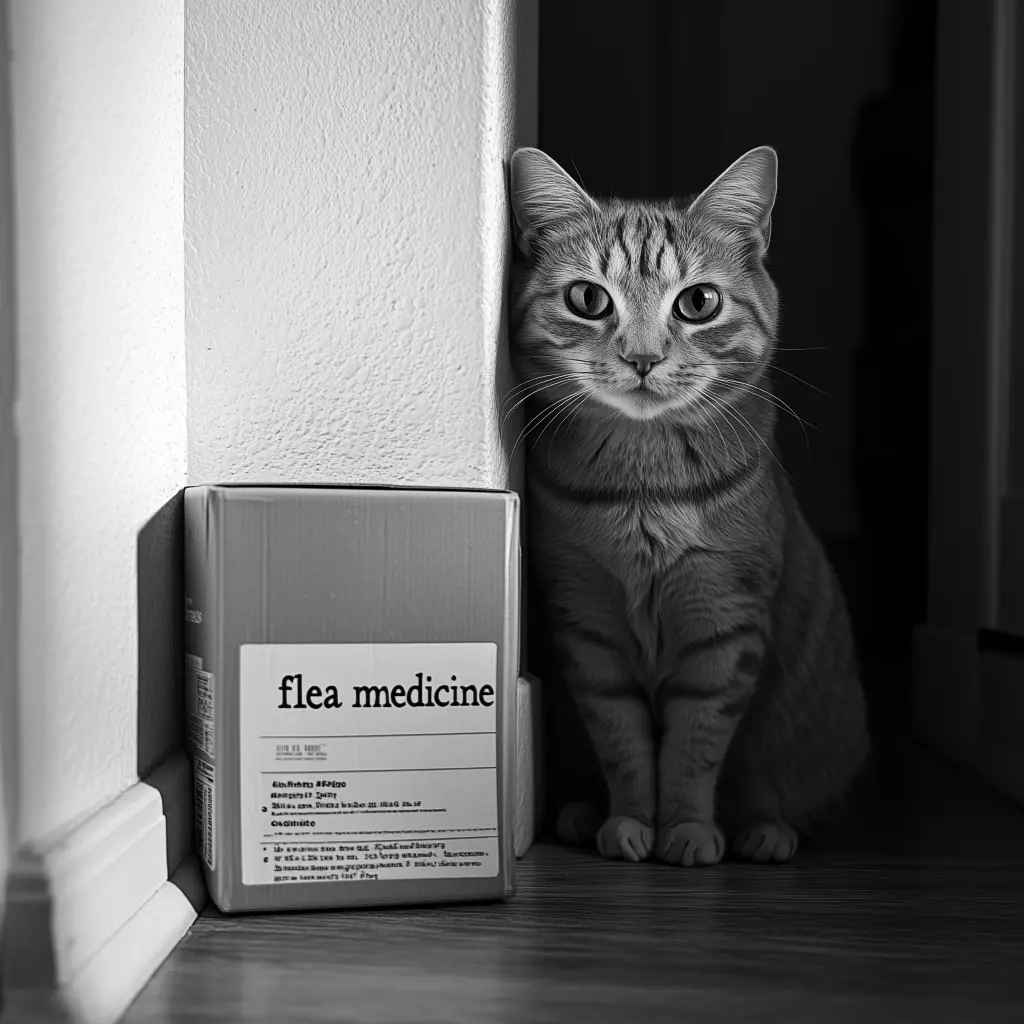
Allergies
Besides causing other health issues, pests can also cause kitty to have an allergic reaction. Fleas are known to do this from their bite.
“All cats can be affected to some extent by flea bites, but an allergic cat will react with disproportionate severity [10.]“
As an owner who has had this problem, this required a vet visit, a shot at the vet, and more diligent at home care to ensure I did everything I could to prevent kitty from getting this again. Some folks have a harder time figuring out an allergic reaction but in my case it seemed to be some type of pest that was being unintentionally brought into the house.
Has your cat had an allergic reaction to something? What was it? What fixed it? Click this link to drop a comment at the bottom of this page!
8. House Cat vs Feral Cat
So why am I covering this? Because where did kitty come from is important to understand if you know the history of your new furry friend.
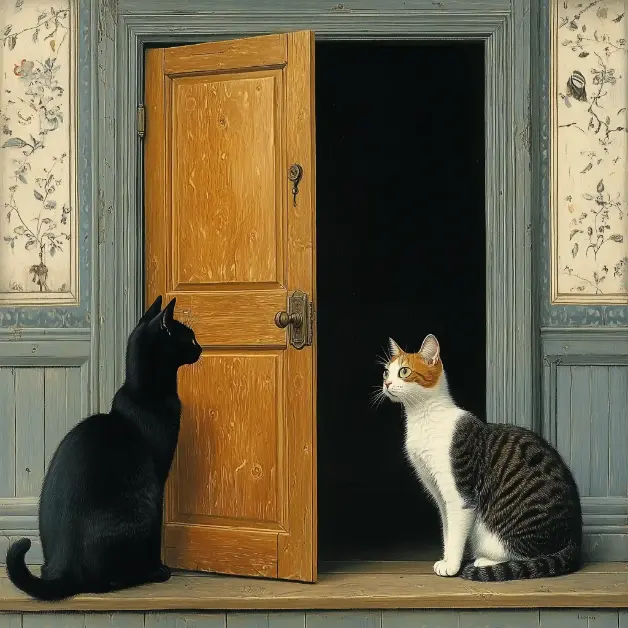
A house cat is a pretty simple concept. Kitty has been most exposed to a life in someone’s house. Aka most likely spoiled lol. If they’ve had a healthy cat life with no health issues they will more often than not look well fed and be nice and picky eaters.
A feral cat on the other hand has often the opposite things true. It will have spent most of its life outdoors in the wild. It may be malnourished, thin, or have other health issues at hand.
Feral cats spend all of their time on alert, not sure what is lurking around any given corner of the world. This shows in their behavior where they are most likely to show signs of being easily scared, startled, or skittish.
In turn, don’t be surprised when they are scared of humans. After all, cats do not know your intentions.
There is a ton more to talk about on this, but just know these two kinds of cats will act very differently from one another. If you know you are dealing with a feral cat, be extra kind and patient with kitty. Reassuring kitty you are not there to harm them will go a long way in your relationship with the cat.
If all goes well, your new feral cat may soon turn into the spoiled house cat! Most cats are scared of strangers and the human scent they do not recognize. This is natural. Patience is key with any cat if you’re trying to warm up to them.
9. A Cat Chooses YOU (Not the Other Way Around)
If you’ve never been around cats or know cat behavior you may not understand what this means yet, but you will. Here are some examples from someone that’s been around many, many cats for many, many years.
- A cat chooses when to come to you
- A cat chooses when to sit on your lap
- A cat meows at you when it wants to
- A cat plays with you when it wants to
- A cat will let you pet it when it wants to
- A cat will sleep next to you when it wants to
- A cat chooses you because it wants to
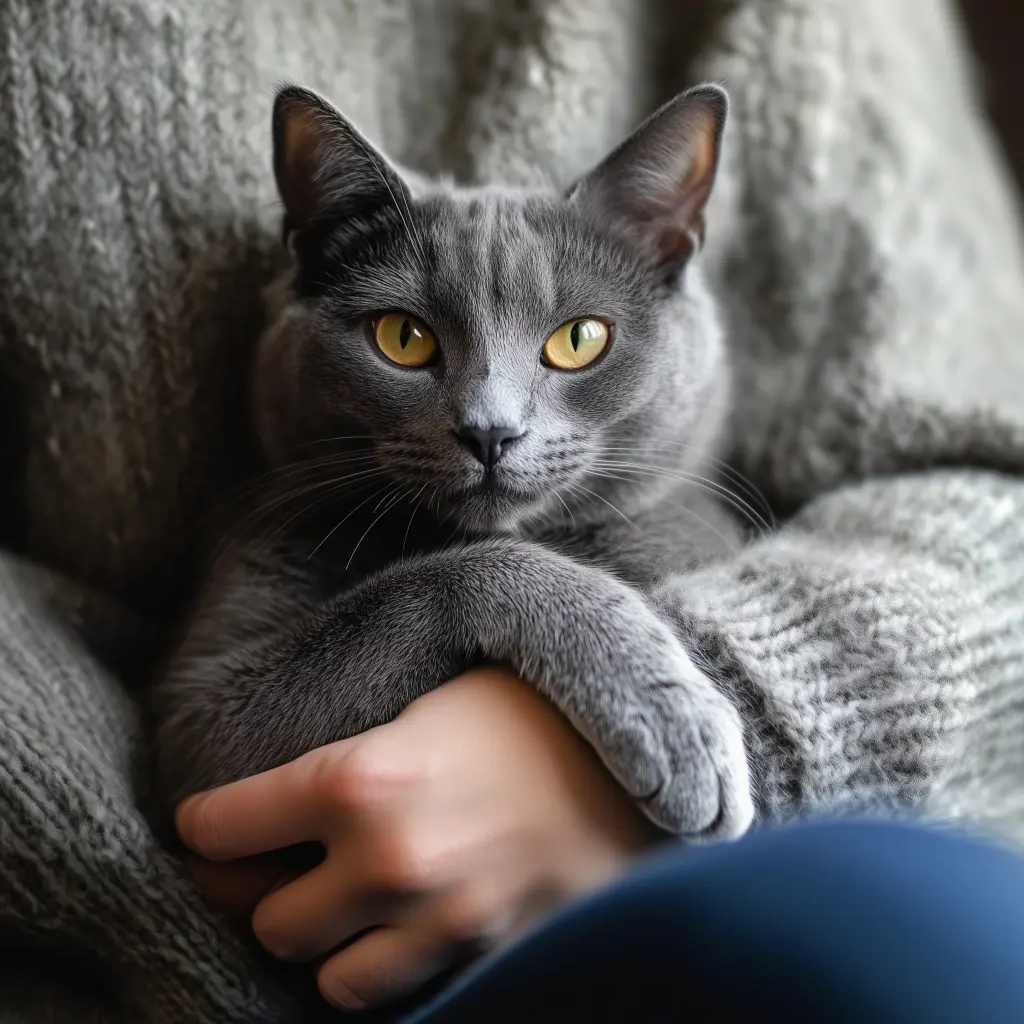
Starting to get the idea? Any cat owner will tell you that you cannot force a cat to do things that it does not want to do. Now if you get brave enough to try to go against these feline mind readers it will usually not work out anyhow.
In other words, unless you have a very valid reason, forcing a cat to do something is not a good idea and typically just backfires.
For instance, you really want your cat to cuddle with you but hasn’t come to you on its own. You pick up kitty and put kitty in your lap on the couch. Within seconds the cat turns and jumps off the couch.
Why? Because kitty will cuddle with you when it wants to. Kitty was not in the mood.
Which leads me to my next point…
10. Some Cats Cuddle, Some Cats Don’t
So here’s a scenario that may hit home to some. You go over to your friend’s house who has the most adorable cat that always comes over to cuddle with you when you visit. After spending so much time at your friends and loving this cat you decide you want a cat of your own.
You go out and adopt a cat. You are now at home with a cat that doesn’t seem to show an interest in cuddling.
So here’s the deal. Some cats just are not cuddlers. As someone that has owned a cat that is a cuddler almost 24/7 and has also owned a cat that is almost the EXACT opposite. Like hello I just fed you, gave you fresh water, some catnip, and a new cardboard box. Can I get a hug? Lol
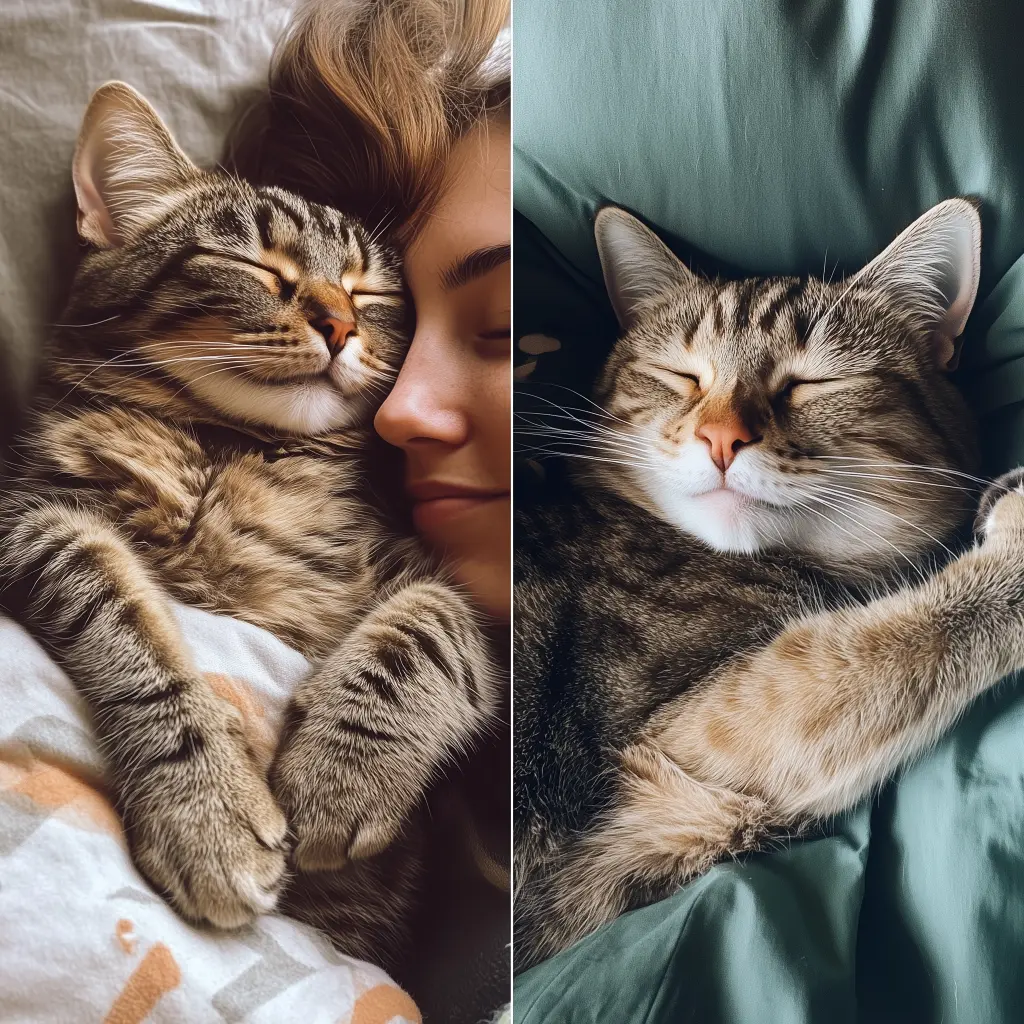
I can comfortably say that even though I treat both cats with the same amount of love and spoilage…one cuddles and one really does not.
Now you never know maybe you just need to convince your kitty over some time and it may happen but if it doesn’t do not fret. Kitty still loves you. The more you spoil a cat and endlessly love on the cat, the more chances it may just come around and surprise you one day.
Cost of Cuddles a For First Time Cat Parent?
Priceless…
11. Hairballs Happen
So all of a sudden your cat starts a sound that makes you think kitty might be sick. It looks like kitty is coughing, making gagging noises, or trying to vomit and you are concerned. Kitty is walking around aimlessly trying to get it under control but eventually ends up throwing up.
The build up to this might last for some time before kitty finally gets it out of their system. But guess what? It ends up being just some vomit with some fur in it aka a hairball. It looks pretty groovy and gross but it happens and can look like the shape of a hotdog (can be shorter, or smaller but often similar in shape.)
This is a result of that grooming thing we discussed above. Lots of hair ingested. It has to go somewhere and it’s coming up and on your floor, couch, etc.
How to Prevent Hairballs in Cats
There are some things you can do to help reduce hairballs:
- Help Kitty with grooming and loose hair removal (with the assistance of a cat grooming brush)
- Fish Oils like Salmon oil (Helps reduce shedding and moving ingested hair along digestive tract) [6.]
- Hairball Reducing Products (Like those sold at pet stores)
- Specialty hairball control cat food
- Ensure Kitty has plenty of water available
- Keeping your cat active
- Professional Grooming (especially for long haired cats)
- Ask a Vet
When to Be Concerned About Hairballs
According to Cornell University of Veterinary Medicine, it is normal for a cat to regurgitate a hairball once every week or two [7.]
However, hairballs can be a serious threat if:
- The hairball becomes too large to pass back through their system
- The hairball gets lodged in the small intestine (not common but can be fatal)
- There are frequent vomiting and attempts without producing a hairball
- Your cat seems especially weak or fatigued
- Kitty becomes constipated (can be a sign of a blockage)
- Kitty refuses to eat for more than 1-2 days
If you know any of the above to be true, please seek out a vet as soon as possible.
Of course, much of this sounds alarming but just know a cat having hairballs is normal. A cat needing medical attention from an obstruction is uncommon so breathe a sigh of relief.
Better to be armed with knowledge awareness!
12. Cats Are Very Different From Dogs and Other Animals
If you’ve owned a dog or been around dogs and love the way dogs operate just know cats are very different from dogs. I say this because the behavior expectations of owning a cat will be very different than owning a dog or another type of animal.

The Independent Cat
Cats are generally very independent and typically don’t mind spending a ton of time to themselves. Think of it like an independent introvert that still depends on you for food, water, and some interaction (assuming an indoor cat.) Outdoor cats will try to find food and water on their own.
Cats Don’t Need To Go Outside To Use The Bathroom
While it’s true that a cat does not need to go outside to use the bathroom, they still need a place to go. Otherwise, it will be your floor as the place of choice lol. This goes back to the litter box section above. Amazingly it seems like most cats just know how to use them. It’s pretty much in their DNA.
“Cats are born with the instinct to dig and cover their waste [8.]” They can also be reinforced with this behavior by their mothers at a young age.
Why do they do this? It seems likely that it is to hide the scent from other predators.
13. Cats Like to Sleep A LOT
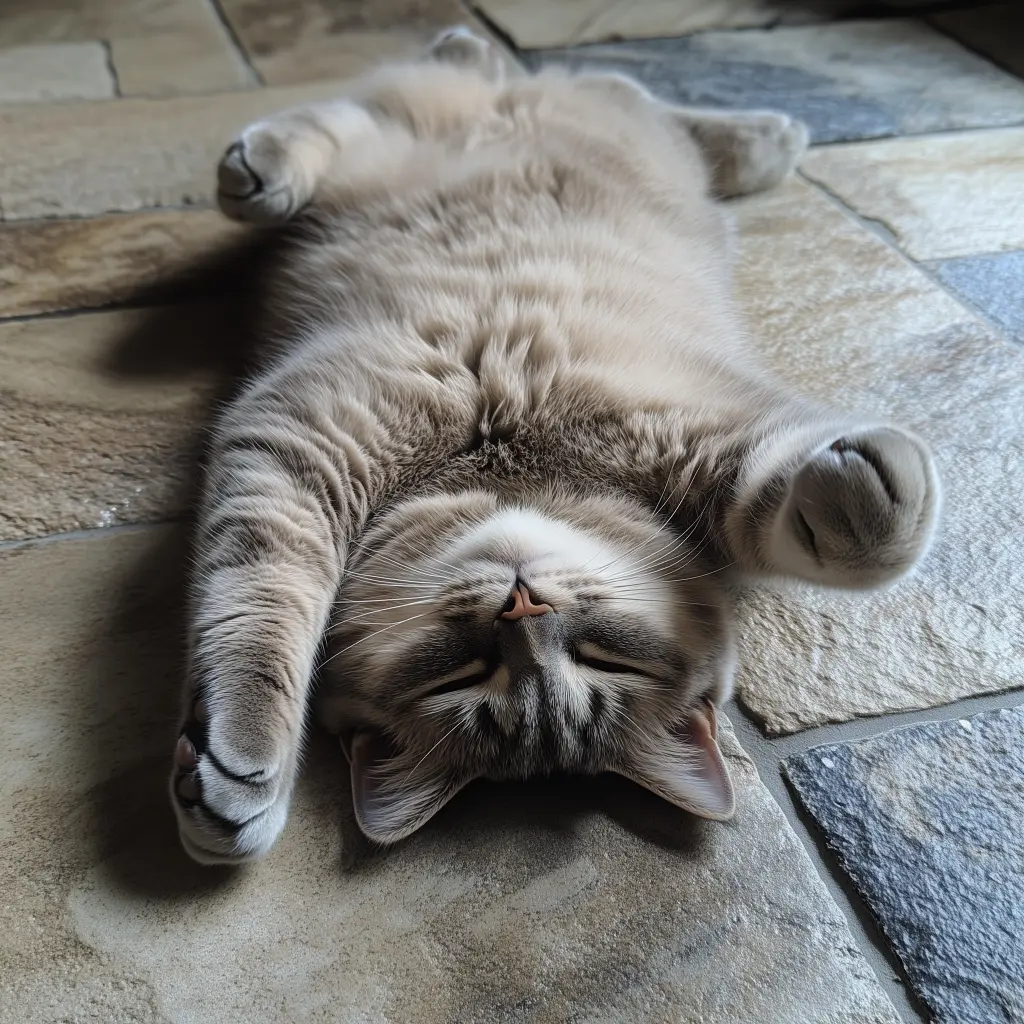
There are reasons that so many pictures exist out in the world of cats sleeping. Because it’s not hard at all to catch a cat sleeping because they do it all the time! This is especially true for indoor cats that do not need to be on high alert like an outdoor cat would.
FYI…If you find yourself jealous of kitty’s naps and want a better snooze like your kitty head on over to 👉 sleep like your cat 💤 for a little help.
Kittens are more active than adult cats so they may be a little less lazy. The older and more spoiled the cat gets (from all the cats I’ve been around) it’s very typical to see a cat laying down, sleeping, or being a couch potato.
Unless you suspect something is off with kitty, this is perfectly normal. They do get up, walk around, play, etc. but don’t typically spend loads of time doing that.
Cat Sleeping More Than Usual
If you know your cat’s routines, habits, and sleep patterns and notice that they are sleeping more than usual then it may be a cause for concern. You will know your cat better than anyone else. If you believe your cat is sleeping more than it’s typical pattern, it may be time for a vet visit [9.]
Cat is Sleeping More Than Usual and Not Eating or Playing
Anytime a cat is not eating or has no interest in food all of a sudden and this goes on for 1-2 days without eating anything then get to a vet. This is especially true if they are exhibiting other signs of a possible health issue.
Cats are very good at hiding illness but it is typically easier to spot when eating habits change since you are the one that makes food appear lol
If your kitty is not playing as much this is not necessarily a cause for concern. If you find yourself adding other items to the list in addition to not playing like excessive sleeping, vomiting, abnormal meows, etc. then make that vet appointment.
Listen to your instincts. You’ll sleep better knowing your kitty has been checked out if there is a potential ailment.
14. Cats Like Things Clean
This is especially true for a litter box but in general it is best for you and kitty to keep their environment clean. They will be happier creatures if their surroundings and places they roam are clean.
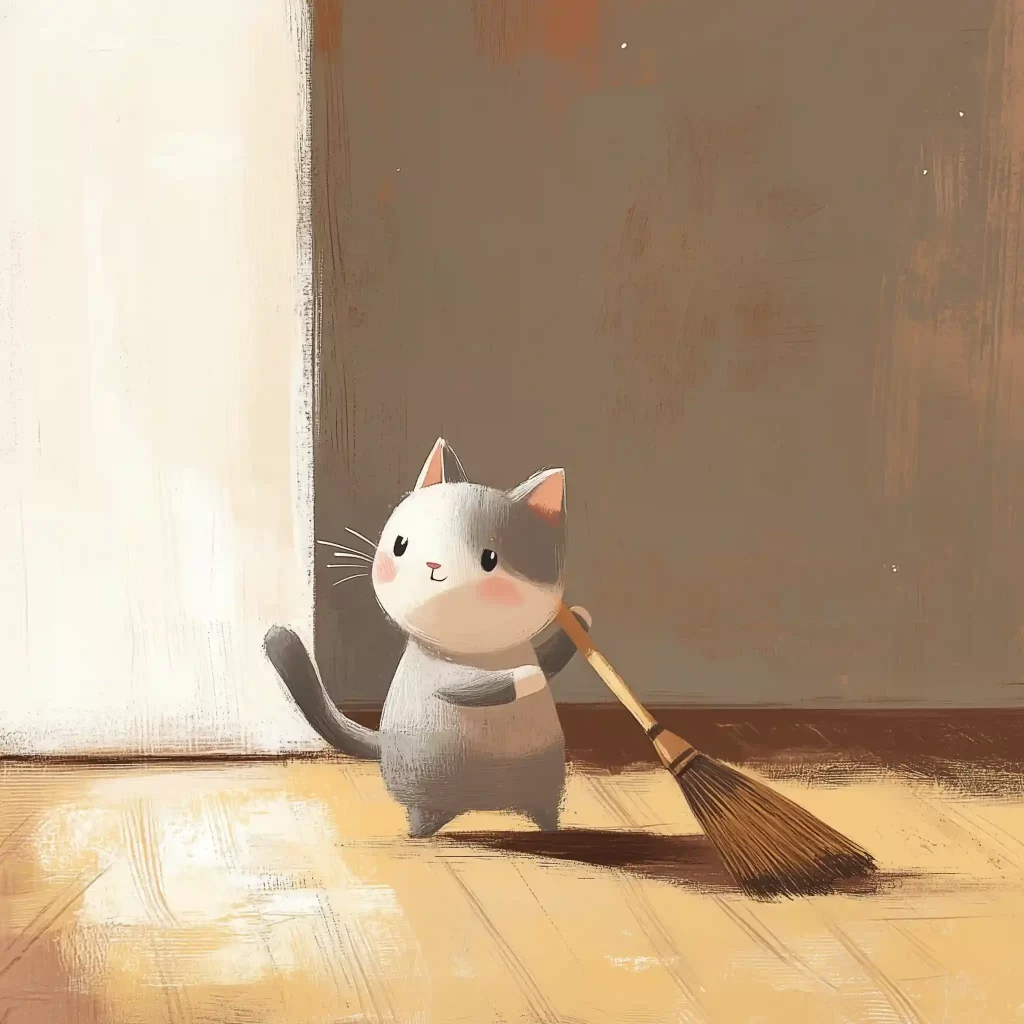
15. Cats Love You and Can Be Sad When You’re Away
As important is the responsibility that comes with taking care of a creature that is dependent on you as an owner, it is equally important to provide a safe and loving environment to your new, furry friend.
Whether the cat shows you or not, they love their owners. Some will show it more than others but they absolutely love you when you’re there and miss you when you’re away.
From personal experience I can say that some cats will greet and meow as soon as you walk in the door as if saying OH MY GOSH WHERE HAVE YOU BEEN? IT’S BEEN LIKE 1 MILLION DAYS SINCE YOU WERE HERE lol.
Just remember don’t leave kitty alone toooooo long. They will get sad when you’re away even if they are independent creatures. Some cats even stress a lot when their owner is away which can affect kitty’s health.
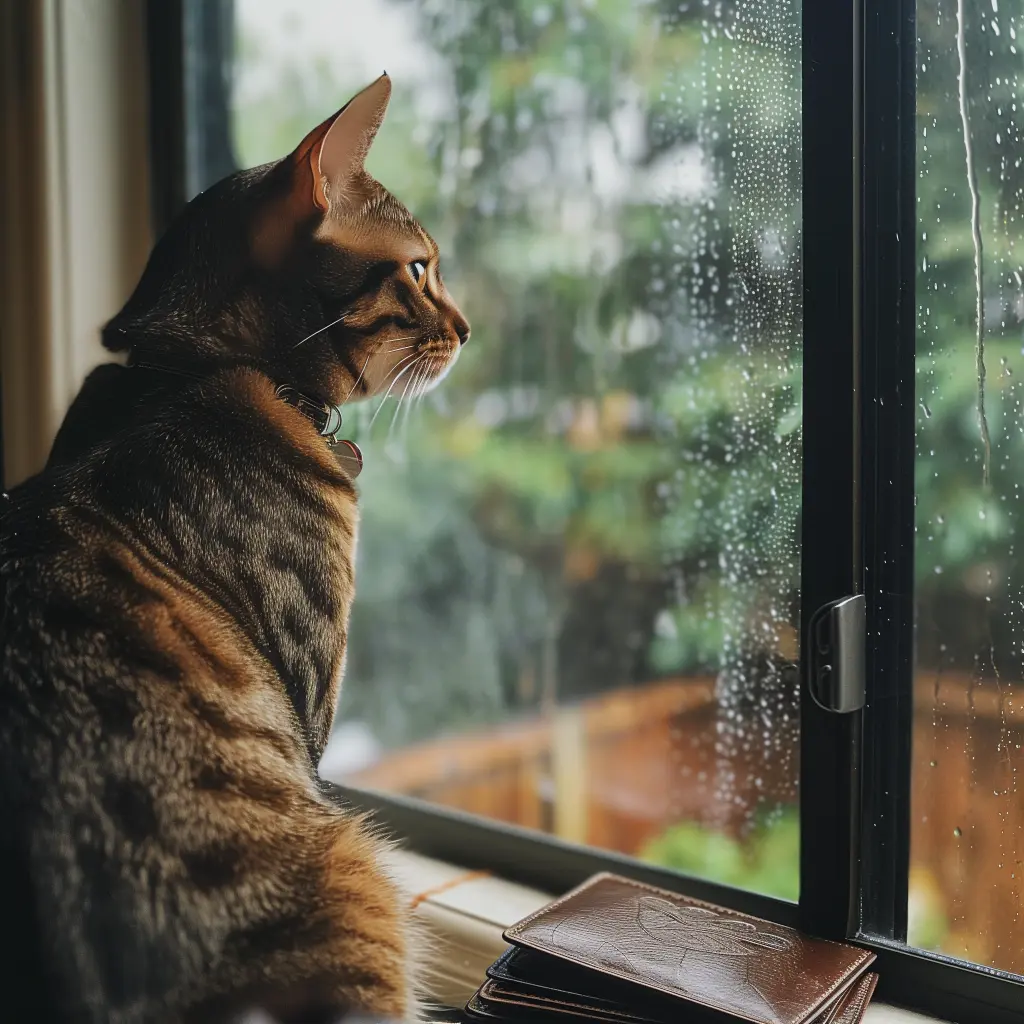
Is there anything you would add to this list? 🤔 Drop a comment below 👇
References
- Plotts, E. (2023, February 24). How much does a vet visit cost? Here’s everything you need to know. Pawlicy Advisor. https://www.pawlicy.com/blog/vet-visit-cost/
- Brown, J., & Brown, J. (2023, April 13). How much does it cost to Spay or neuter a cat? Cats.com. https://cats.com/how-much-does-it-cost-to-spay-a-cat
- Can cats share a litter box? (2024, July 12). https://www.thewildest.com/cat-behavior/can-cats-share-litter-box
- Alger, J. (2024, July 31). How much cat litter per month should you use? Facts & FAQ. Catster. https://www.catster.com/cat-health-care/how-much-cat-litter-per-month-should-you-use/
- Staff, P. (2023, December 7). Where is declawing illegal? | PETA. PETA. https://www.peta.org/blog/where-declawing-is-illegal/
- DiannaBailer. (n.d.). 3 ways to naturally reduce hairballs. PetPros. https://petpros.net/3-ways-naturally-reduce-hairballs/
- The danger of hairballs. (n.d.). Cornell University College of Veterinary Medicine. https://www.vet.cornell.edu/departments-centers-and-institutes/cornell-feline-health-center/health-information/feline-health-topics/danger-hairballs
- Leeson, J. (2022, September 22). How Do Cats Know to Use the Litter Box? We’ve Got the Scoop. Daily Paws. https://www.dailypaws.com/cats-kittens/behavior/common-cat-behaviors/how-do-cats-know-to-use-litter-box
- Cat is Sleeping Constantly: Should I Worry? | Clemmons Vets. (n.d.). https://www.animalhospitalofclemmons.com/site/veterinary-pet-care-blog/2022/06/15/cat-sleep-constantly
- Flea Allergy. (n.d.). Cornell University College of Veterinary Medicine. https://www.vet.cornell.edu/departments-centers-and-institutes/cornell-feline-health-center/health-information/feline-health-topics/flea-allergy
